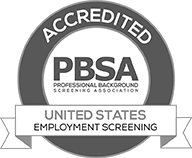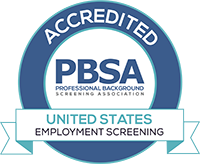BLOG
California May Limit Access To Arrest Records
June 8, 2021
The Criminal Records Relief Bill
California legislators proposed Senate Bill 731 (SB731), which is also known as the Criminal Records Relief Bill. It calls for the Department of Justice (DOJ) to conduct a monthly review and identify individuals who have arrest records that should be expunged. To be eligible, the arrest must have occurred on or after January 1, 2021 and one of the following must apply:
- The arrest was for a misdemeanor offense that was later dismissed.
- The arrest was for a misdemeanor, no criminal proceedings have been initiated, no conviction occurred, or the person was acquitted.
- The arrest was for a felony offense that is not punishable by imprisonment in the state prison for eight years or more, no criminal proceedings have begun, at least three years have passed since the date of the arrest, no conviction occurred, or the person was acquitted.
- The person successfully completed any of the following, relating to that arrest:
- A prefiling diversion program, as defined in subdivision (d) of Section 851.87, administered by a prosecuting attorney in lieu of filing an accusatory pleading.
- A drug diversion program administered by a superior court pursuant to Section 1000.5, or a deferred entry of judgment program pursuant to Section 1000 or 1000.8.
- A pretrial diversion program, pursuant to Section 1000.4.
- A diversion program, pursuant to Section 1001.9.
SB731 would also provide relief for some felony convictions that occurred on or after January 1, 2005 if the person did not complete probation without revocation and appears to have completed all terms of incarceration, probation, mandatory supervision, post-release supervision and parole - and the individual has not since been convicted of a new felony offense.
What California Employers Should Know
If the bill is made into law, the DOJ will “electronically submit a notice to the superior court having jurisdiction over the criminal case, informing the court of all cases for which a complaint was filed in that jurisdiction and for which relief was granted.” Once this occurs, arrest records can be sealed.
Expunged records are no longer publicly available. Employers in California should be aware that if SB731 passes, they will not be able to review or consider any records that are subsequently expunged. The bill notes that this does not relieve an individual of an obligation to “disclose an arrest in response to a direct question contained in a questionnaire or application for employment as a peace officer.”
SB731 is expected to be approved by the Senate and signed into law. Learn more.
Background Checks Remain Essential
SB731 is an example of a Second Chance law that is designed to give people who have arrests and convictions new opportunities to obtain jobs, housing and other necessities. These laws are also thought to help reduce the rate of recidivism while giving employers a larger pool of applicants. Background screening remains an essential part of the hiring process for employers throughout the United States.
Comprehensive background checks can show organizations if a candidate has violent or other serious criminal convictions that might indicate they pose a risk to the company, other staff or the public. They help hiring managers make informed decisions, conduct due diligence, and maintain safe workplaces.
If your organization is hiring and needs background screening services, please contact us. Our team is highly trained at customizing background checks for any type of position and keeps up with laws that affect employers. We are available to assist you Monday through Friday from 5am to 6pm PT.







